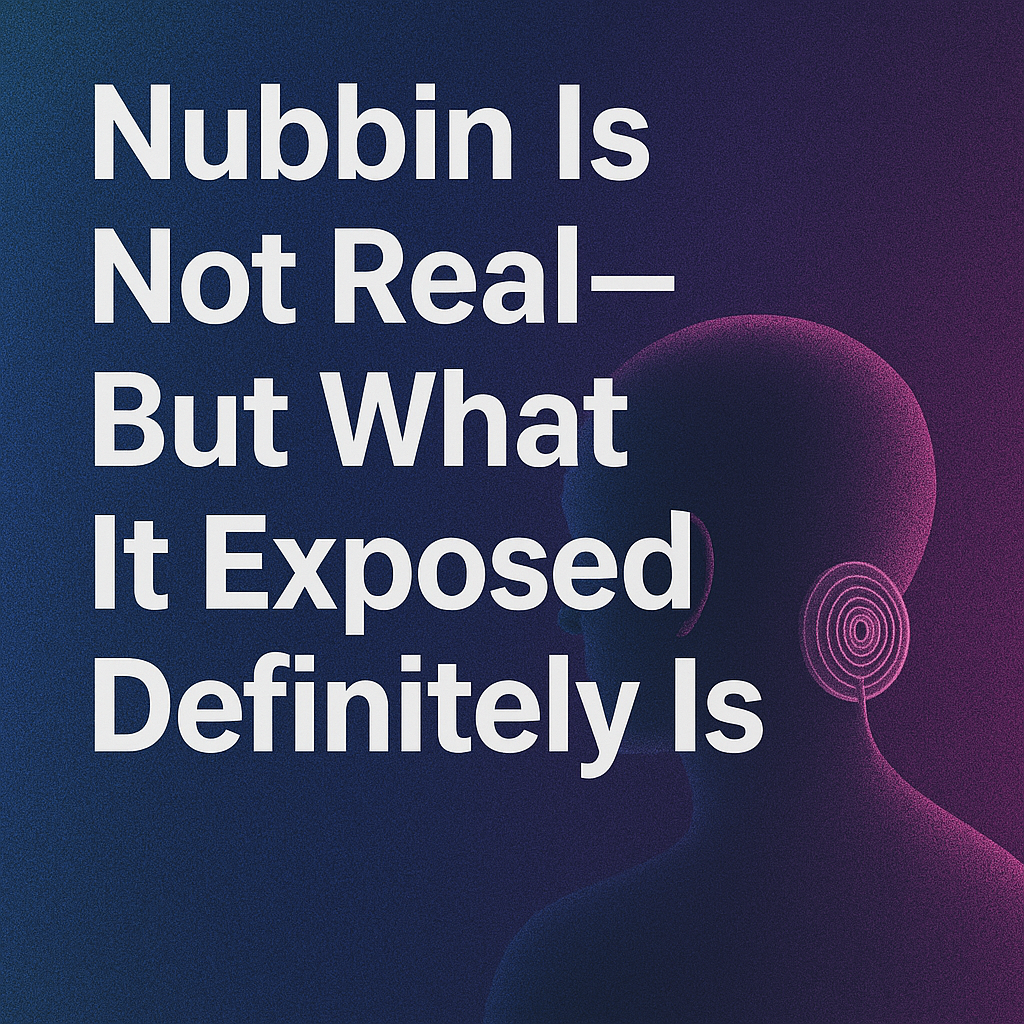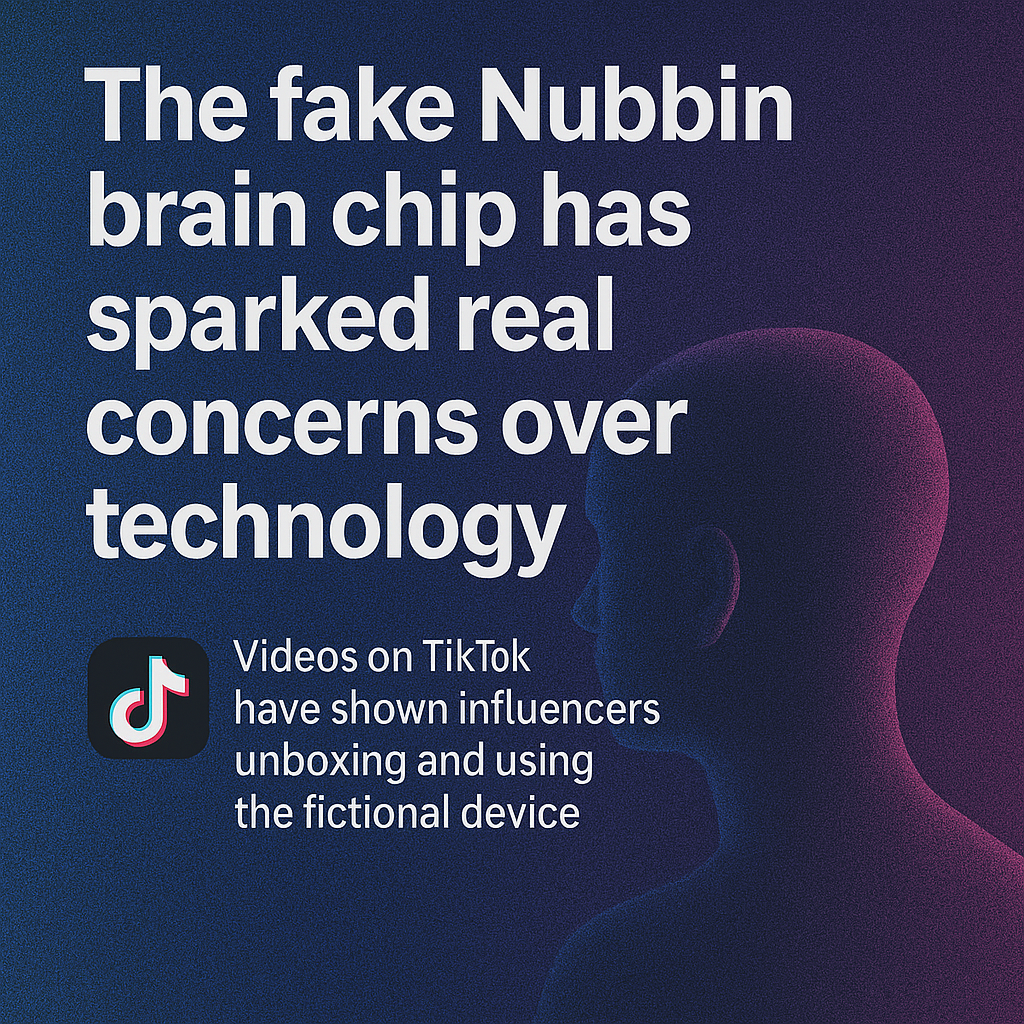Nubbin: The Fake Brain Chip That Sparked Real Fears

By Epiphanus Obia
A strange-looking device called the “Nubbin” recently caused a stir on the internet, especially on TikTok. In videos posted by popular influencers like Rylan Clark and Cadaea, the Nubbin was shown as a small gadget that connects to the back of the neck, with users claiming it could let them relive memories, feel more alive, or even escape reality. These videos spread quickly, leaving many people wondering if this was a new invention they could actually buy.
But it turns out the Nubbin isn’t real at all. It’s part of a clever publicity stunt for the new season of Black Mirror, a TV show known for telling dark and thought-provoking stories about how modern technology could go wrong. The goal was to get people talking—and it worked.
The campaign behind the fake device was well put together. There was a website for a made-up company called TCKR Systems, which had pages that looked like those of real tech businesses. You could click through sections like “About Us,” “Careers,” and “Contact.” The site also had dramatic messages that made it seem like the Nubbin was a real scientific breakthrough, with phrases like “faster than reality” and “see and hear better than your senses normally allow.” It even claimed the Nubbin could stop “brain rot” by installing antivirus software, just like the kind used on computers.
On TikTok, influencers acted like they were testing the Nubbin in real life. Some described it as a life-changing experience. The company even set up a LinkedIn profile, and posters appeared in public places promoting the device with mysterious slogans. Fake emails were “leaked” to news outlets, making it seem like the company was secretly working with Black Mirror creator Charlie Brooker.

While it was all made up, the fake Nubbin raised serious issues that people are already thinking about. The idea of a device that can access your memories or feelings isn’t completely impossible. Some scientists are experimenting with ways to connect the human brain to computers—although these are still in the early stages and mostly used for medical reasons.
The health warnings on the fake website also sounded scary. They mentioned side effects like eye color changes, memory problems, a sense of not feeling real, and even brain damage. While these aren’t real symptoms, they do reflect the kinds of risks people fear as we move toward more advanced gadgets that could affect how we think or feel.
Another concern was about privacy. The fake company claimed it could collect your thoughts, your dreams, and even your web browsing history, including things you thought were deleted. This taps into a real worry people have today about how companies use their personal information and whether they’re being watched more closely than they realize.
The campaign even mentioned the need for antivirus software for your brain. While this sounds like science fiction, it points to a possible future where people might need protection not just for their devices but for their minds.
Although it was only a fake product used to promote a TV show, the Nubbin made people stop and think. It looked so real that many believed it could exist. That says a lot about how easy it is to be fooled by things that look like official products online, especially when they come with professional-looking websites, big promises, and influencers promoting them.
It also raises the importance of knowing how to check facts online. Many people were quick to believe the Nubbin was real because it looked and sounded like something from a tech company. This shows how important it is to stay alert and ask questions before accepting something as true—especially when it involves big claims about new technology.
In the end, the Nubbin was just a clever trick to get people excited about a TV show. But it also led to bigger conversations about privacy, safety, and how far we’re willing to go with new inventions. The device may be fake, but the issues it brought up are very real.






